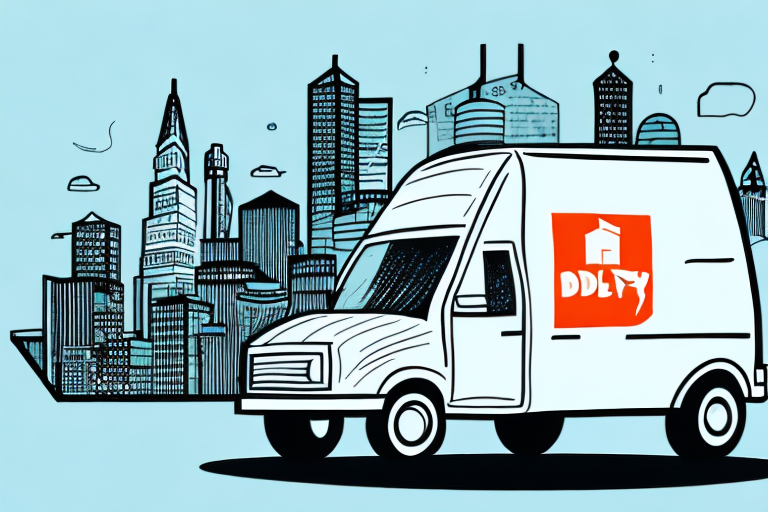How to Launch a Successful Courier Startup
Courier services are essential for the smooth functioning of businesses and personal deliveries. With the rapid growth of e-commerce and the global economy, the courier industry is more vibrant than ever. For entrepreneurs looking to capitalize on the high demand for delivery services, starting a courier business can be both lucrative and rewarding. However, it requires meticulous planning and preparation to ensure success. This guide provides valuable insights on launching a successful courier startup, from developing a business plan to measuring success and beyond.
Market Opportunities and Industry Overview
Growing E-commerce Market
The e-commerce sector has been experiencing substantial growth, with global online sales projected to reach approximately $6.54 trillion by 2023. This surge creates a robust demand for reliable and efficient courier services to handle the increasing volume of packages. Additionally, the rise of niche markets and specialized products offers opportunities for courier businesses to cater to specific delivery needs.
Impact of the COVID-19 Pandemic
The COVID-19 pandemic significantly accelerated the shift towards online shopping, as consumers sought contactless delivery options. This trend has persisted, maintaining a heightened demand for courier services. According to a McKinsey report, the increase in online purchases has sustained the growth trajectory of the courier industry even beyond the pandemic's peak.
Legal and Regulatory Requirements
Before initiating a courier business, it is crucial to comprehend the legal and regulatory landscape. Obtaining the necessary permits and licenses is essential to operate within local, state, and federal jurisdictions. Regulations can vary significantly based on location, so thorough research is imperative. Key requirements typically include:
- Business Registration: Officially register your business name and structure.
- Insurance: Secure appropriate insurance policies to protect against liabilities.
- Transport Regulations: Comply with laws governing the transportation and delivery of goods.
- Safety Standards: Adhere to safety protocols for handling sensitive or hazardous materials.
Additionally, understanding privacy and security regulations is vital, especially when handling sensitive information or valuable items. Implementing robust security measures, such as employee background checks and secure tracking systems, helps ensure compliance and protect your reputation.
Business Planning and Strategy
Conducting Market Research
Comprehensive market research is foundational to identifying opportunities and understanding competition. Key aspects include:
- Target Market Identification: Define your ideal customers, their needs, preferences, and purchasing behaviors.
- Competitive Analysis: Assess the strengths and weaknesses of existing courier services to determine your unique value proposition.
- Industry Trends: Stay informed about emerging trends, such as the integration of AI in logistics or the use of electric vehicles for deliveries.
Gathering customer feedback through surveys, focus groups, and social media can provide actionable insights to refine your services and enhance customer satisfaction.
Creating a Business Plan
A well-structured business plan outlines your courier startup's goals, strategies, and financial projections. Essential components include:
- Executive Summary: A brief overview of your business objectives and strategies.
- Service Offerings: Detailed description of the delivery services you will provide.
- Marketing Strategy: Plans for promoting your services and attracting customers.
- Operational Plan: Outline of daily operations, logistics, and technology integration.
- Financial Projections: Estimates of startup costs, revenue, and profitability.
Having a solid business plan is crucial for securing funding from investors or lenders and serves as a roadmap for your business's growth.
Choosing the Right Delivery Model
Deciding between business-to-business (B2B), business-to-consumer (B2C), or a hybrid model depends on your target market and service capabilities:
- B2B: Focuses on bulk and contracted deliveries to other businesses, often requiring larger vehicles and specialized logistics.
- B2C: Involves delivering individual packages to consumers, emphasizing speed and flexibility.
- Hybrid: Combines both B2B and B2C services, allowing for a diverse client base and revenue streams.
Align your delivery model with your business goals and customer needs to optimize operations and maximize profitability.
Building Your Brand and Marketing Strategy
Establishing a strong brand identity and effective marketing strategy is essential to differentiate your courier business in a competitive market. Key elements include:
- Brand Identity: Develop a memorable logo, consistent color scheme, and a clear brand message that reflects your business values.
- Digital Marketing: Utilize SEO, content marketing, and social media platforms to reach a broader audience.
- Partnerships: Collaborate with local businesses and organizations to expand your service reach.
- Customer Engagement: Implement loyalty programs and responsive customer service to enhance client retention.
Consistent branding across all channels reinforces your market presence and builds trust with customers.
Operations and Technology
Setting Up Operational Infrastructure
An efficient operational infrastructure is critical for seamless courier services. Important considerations include:
- Logistics Management: Implement systems for route optimization, inventory management, and real-time tracking.
- Order Tracking: Provide customers with the ability to monitor their deliveries in real-time.
- Customer Support: Establish a robust customer service system to handle inquiries and resolve issues promptly.
Leveraging Technology
Technology plays a pivotal role in enhancing operational efficiency and customer experience. Key technologies to consider:
- GPS Tracking: Enables real-time monitoring of deliveries, improving transparency and reliability.
- Mobile Applications: Facilitate easy scheduling, tracking, and communication between customers and couriers.
- Data Analytics: Analyze customer behavior and delivery patterns to optimize services and identify growth opportunities.
- Automation: Incorporate automated sorting systems and drones to expedite deliveries and reduce operational costs.
Investing in the right technologies can significantly streamline operations and provide a competitive edge.
Team Management
Your delivery team is the foundation of your courier business. Effective recruitment, training, and management practices are essential:
- Recruitment: Hire experienced and reliable delivery personnel who align with your company values.
- Training: Provide comprehensive training on delivery protocols, safety measures, and customer service standards.
- Management: Foster a positive work environment, offer incentives, and implement performance evaluation systems to maintain high levels of employee engagement and productivity.
Scaling Your Business
Scaling your courier business involves strategic expansion and resource management. Key strategies include:
- Expanding Service Areas: Gradually extend your delivery zones to tap into new markets.
- Investing in Infrastructure: Upgrade your fleet and invest in advanced logistics software to handle increased demand.
- Diversifying Services: Offer additional services such as same-day delivery, international shipping, or specialized handling to attract a broader customer base.
- Securing Funding: Explore funding options like loans, venture capital, or crowdfunding to support expansion initiatives.
Measuring Success
Tracking key performance indicators (KPIs) is crucial to assess your courier startup's performance and identify areas for improvement. Important KPIs include:
- Delivery Time: Monitor average delivery times to ensure efficiency and meet customer expectations.
- Customer Retention Rate: Measure how effectively you retain customers over time.
- Operational Efficiency: Assess the effectiveness of your logistics and resource utilization.
- Profitability: Analyze revenue streams and expenses to ensure sustainable financial health.
Utilizing analytics tools and regularly reviewing performance metrics will help you make informed decisions and drive continuous improvement.
Addressing Challenges and Risks
Launching a courier startup comes with its own set of challenges and risks. Proactively addressing these can help mitigate their impact:
- Competition: Differentiate your services through unique value propositions and exceptional customer service.
- Cybersecurity Threats: Protect your data and systems from breaches by implementing robust security measures.
- Regulatory Compliance: Stay updated with changing regulations to avoid legal complications.
- Operational Risks: Manage risks related to logistics, such as vehicle breakdowns or delivery delays, through contingency planning.
Implementing comprehensive risk management strategies, including insurance and regular audits, can safeguard your business against potential setbacks.
Real-Life Success Stories
Numerous courier startups have achieved remarkable success by leveraging strategic planning and innovation. Notable examples include:
- Postmates: Gained prominence by offering on-demand delivery services, later acquired by Uber to enhance its delivery capabilities.
- Doordash: Expanded rapidly by focusing on the food delivery niche and forming partnerships with local restaurants.
- UberEats: Utilized Uber's extensive network to offer seamless food and package delivery services globally.
These success stories demonstrate that with the right strategies and adaptability, a courier startup can scale and thrive in a competitive market.
In conclusion, launching a courier startup can be a highly profitable and fulfilling endeavor when approached with careful planning and execution. By following the guidelines outlined in this article, entrepreneurs can establish a strong foundation for their courier business and navigate the path to lasting success.



















